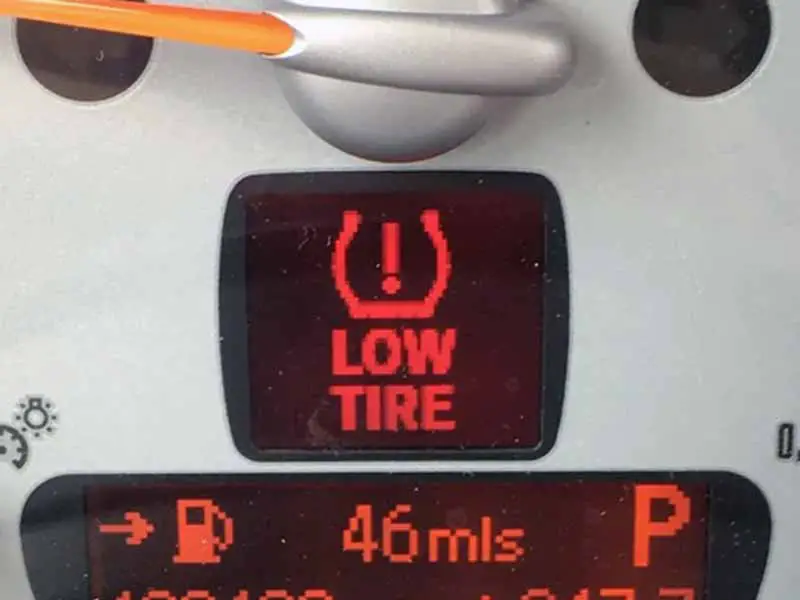Imagine being stranded on the side of the road with a destroyed tire. Ignoring a low pressure warning light for months can lead to this exact scenario.
Modern tires, with their lower profiles an stiffer sidewalls make it more and more difficult to “feel” low pressure until you are putting stress on the tires such as when turning or stopping.
Is It Worth It To Replace TPMS Sensors?
Yes, replacing TPMS sensors is essential for maintaining proper tire pressure, ensuring safety, complying with legal requirements, and potentially saving money by extending tire life and preventing accidents.
In this article, you’ll learn about the functionality of your tire pressure monitoring system and their tire pressure sensors, why and when to replace them, the cost considerations, and the answers to some frequently asked questions.
We’ll explore the importance of TPMS sensors in the context of modern vehicle design, legal mandates, safety considerations, and individual decision-making to provide a comprehensive view of this essential automotive component.
Let’s take a closer look.
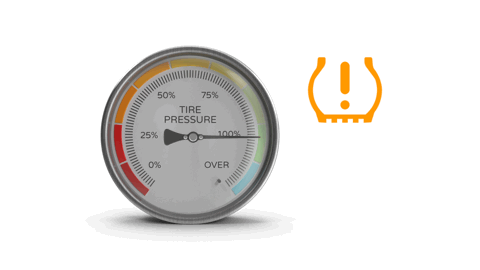
Understanding the Tire Pressure Sensor
TPMS stands for Tire Pressure Monitoring System. It’s a vital part of modern cars and trucks that helps you know if your tires are properly inflated. Let’s break down what it does:
- Detects Low Pressure: If the pressure drops below 25% of the recommended air pressure list in your owner’s manual or driver’s door jamb tire information sticker, the TPMS sends a warning to your vehicle’s computer system which displays an alert on your vehicle’s dashboard.
- Works Automatically: You don’t have to do anything. Tire pressure monitoring systems are always watching your tires for you. each tire pressure sensor, working in the background, to make sure everything is okay.
The TPMS is especially crucial now because many tires today are designed differently. They have stiffer sides, which makes it hard to tell if the air pressure is too low just by looking at them.
Why Are Tire Pressure Sensors Used?
Safety First
- Preventing Under-Inflation: When your tires don’t have enough air, they can wear out more quickly. The worst part? They can fail when you’re driving, and that’s very dangerous.
- Helps in Turning and Stopping: If you’re turning or stopping quickly and your tires don’t have enough air, bad things can happen. The TPMS helps avoid these situations by letting you know when to add air to your tires.
The Law and TPMS
- Government Rules: Since 2008, the government has said that all new cars and trucks must have TPMS. They made this rule to keep people safe on the road.
- Tread Act: This law is why TPMS is required. It’s all about making sure that tires are safe and that they last as long as they should.
Saving Lives and Money
- Avoiding Accidents: If your tires are in good shape, they help you control your car better. This means fewer accidents.
- Longer Tire Life: When your tires have the right amount of air, they last longer. This saves you money in the long run.
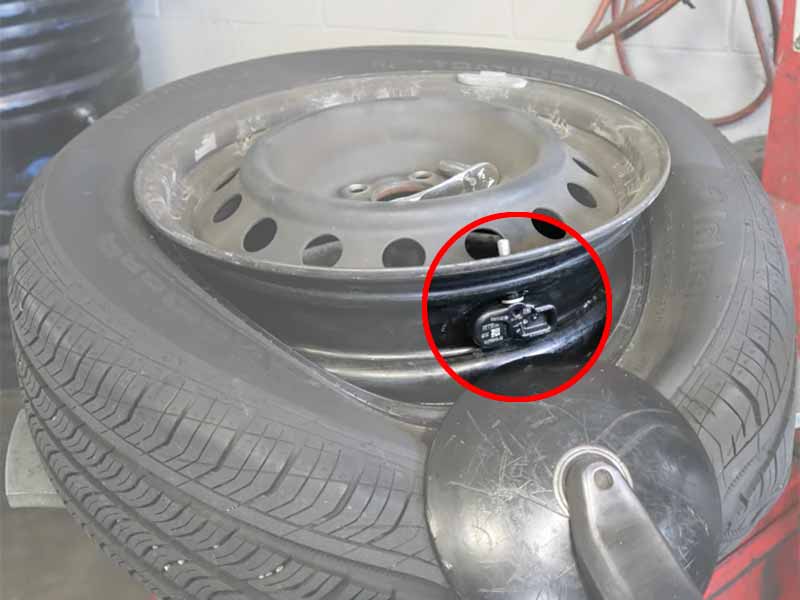
Why Replace TPMS Sensors?
Lifespan of TPMS Sensors
- How Long They Last: TPMS sensors usually last around 5 to 10 years. This can vary based on driving habits and the environment where you drive.
- Signs of a Bad Sensor: Some common signs of a bad TPMS sensor include inconsistent warnings, no warnings at all, or continuous false alarms.
Tire Pressure Sensor Replacement
- Regular Check: It’s wise to have each tire pressure sensor inspected during regular vehicle maintenance.
- Failure Symptoms: If you notice a flashing TPMS warning light or lack of warnings, it may be time a TPMS sensor replacement.
What If You Don’t Replace TPMS Sensors?
- Under-Inflation: If a TPMS sensor fails, it can no longer warn you about low tire pressure. Driving with under-inflated tires increases the risk of tire failure.
- Control Issues: Low tire pressure affects your ability to steer, turn, and brake properly. This can make driving more dangerous.
Legal and Inspection Considerations
- Inspection Failure: In some areas, a non-functioning TPMS sensor may cause your vehicle to fail its inspection.
- Legal Obligations: Disabling or neglecting TPMS sensors may be against the law in certain jurisdictions.
Can You Replace Just One Sensor?
- Situation-Based Decision: If only one TPMS sensor is malfunctioning, it may be acceptable to replace just that one.
- Professional Assessment: However, consulting with a tire or vehicle professional is the best course of action. They can determine whether replacing one or all sensors is the best option for your vehicle.
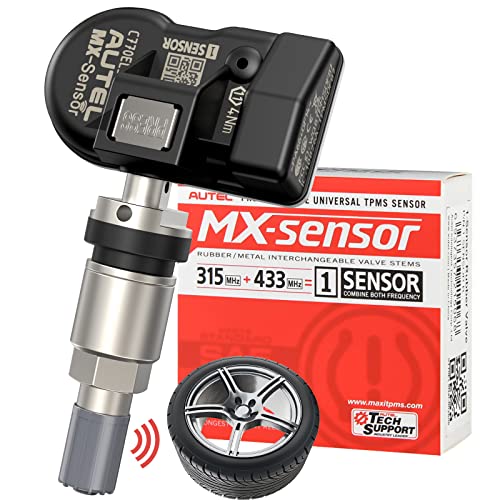
Autel MX Aftermarket Universal TPMS Sensor
Cost to Replace TPMS Sensors
Average Cost
- Typical Expense: The average cost to replace a TPMS sensor ranges from $50 to $250 per sensor, depending on the make and model of your vehicle.
- Factors Affecting Cost: Various factors can influence the cost, including the brand of sensor, labor rates in your area, and whether you’re replacing one or all sensors.
Why Are TPMS Sensors Expensive?
- Technology Inside: TPMS sensors are complex pieces of technology that need to be accurate and reliable. This quality drives up the cost.
- Installation Process: Properly installing a TPMS sensor requires specialized tools and expertise, contributing to the overall expense.
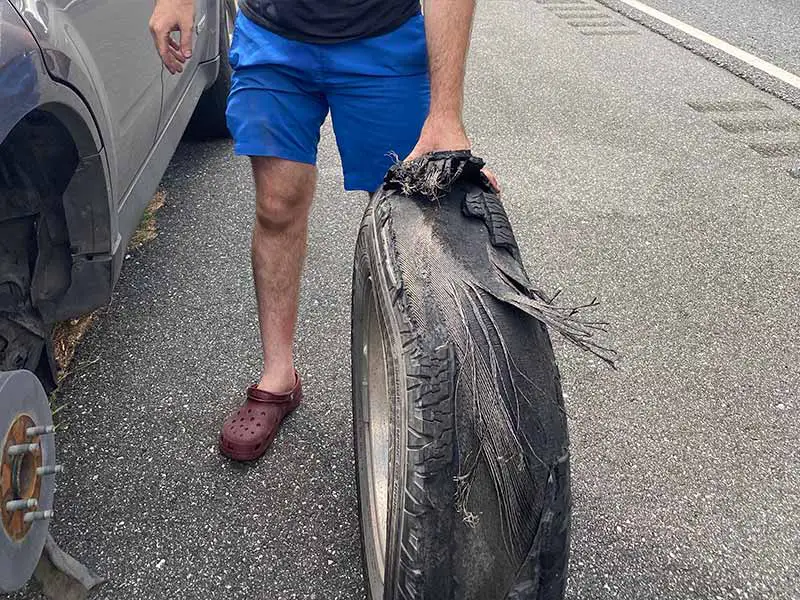
Cost-Benefit Analysis
Money Saved by Extending Tire Life
- Proper Inflation: Ensuring that your tires are always properly inflated can help them last longer. Replacing a TPMS sensor when needed supports this goal.
- Avoiding Premature Wear: Under-inflated tires wear out faster. TPMS sensors help you keep the right pressure, preventing unnecessary wear.
Preventing Accident Damage
- Avoiding Risks: By alerting you to low pressure, TPMS sensors can help you avoid dangerous driving situations that could lead to accidents.
- Potential Savings: Preventing even one accident can save significant money in repairs, not to mention potential medical costs.

Milton Tire Pressure Gauge With Release Valve And Tread Depth Gauge
The Importance of Manual Checks
TPMS systems are an invaluable safety feature, but it’s important to be aware that TPMS system alerts are only triggered once the air pressure in your tires drops by 25% of the vehicle manufacturer’s recommended tire pressure. Here’s why you should still manually check your tire pressure and not solely rely on a tire pressure sensor:
Understanding TPMS Limitations
- Threshold for Alerts: Tire pressure sensors are designed to warn you when the pressure falls 25% below the recommended level, found in the driver’s door jamb or owner’s manual. That means you could be driving with slightly under-inflated tires without receiving an alert.
- Purpose Of A TPMS System: The Purpose of your tire pressure monitoring system is to alert you to dangerously low tire pressure situations only. It is not designed replace regular tire maintenance checks.
Benefits of Maintaining Recommended Pressure
Manually checking and maintaining tire pressure close to the recommended levels is not just about avoiding alerts; it has multiple benefits:
- Prolongs Tire Life: Proper inflation ensures even wear on your tires, which can extend their lifespan.
- Improves Vehicle Performance: Properly inflated tires enhance traction, stopping, handling, and even fuel economy.
Combining TPMS and Manual Checks
- Use TPMS for Significant Drops: TPMS is a valuable warning system for considerable drops in pressure that might lead to safety hazards.
- Manual Checks for Optimal Maintenance: Regularly using a tire pressure gauge to maintain pressure closer to the manufacturer’s recommendations will ensure the best performance and longevity for your tires.
The Bottom Line
While TPMS is a crucial safety tool, it doesn’t replace the need for regular manual checks. By understanding the 25% threshold for TPMS alerts and the benefits of maintaining pressure closer to the recommended levels, you can combine these approaches for the safest and most efficient driving experience. This strategy not only ensures that you’re driving with properly inflated tires but also contributes to improved vehicle performance and long-term savings.
Resources
Below are some links you may find helpful when learning about tires
- How much does it cost to fix a tire pressure sensor? – J.D. Power
- The real benefits of TPMS – Modern Tire Dealer
Final Thoughts
In understanding the importance of TPMS sensors, it’s clear that these devices are more than just a technological feature in modern vehicles. They play a vital role in ensuring safety by maintaining proper tire pressure, help comply with legal requirements, and can contribute to cost savings by extending tire life and preventing accidents. The decision to replace TPMS sensors isn’t merely a matter of routine maintenance but a commitment to responsible driving.
Investing in the proper care and timely replacement of TPMS sensors reflects a broader understanding of vehicle performance and road safety. Whether considering the cost, legal implications, or the practical benefits, the essential nature of TPMS sensors stands out, affirming their worth in the maintenance of any car or truck.
Good luck and happy motoring.
